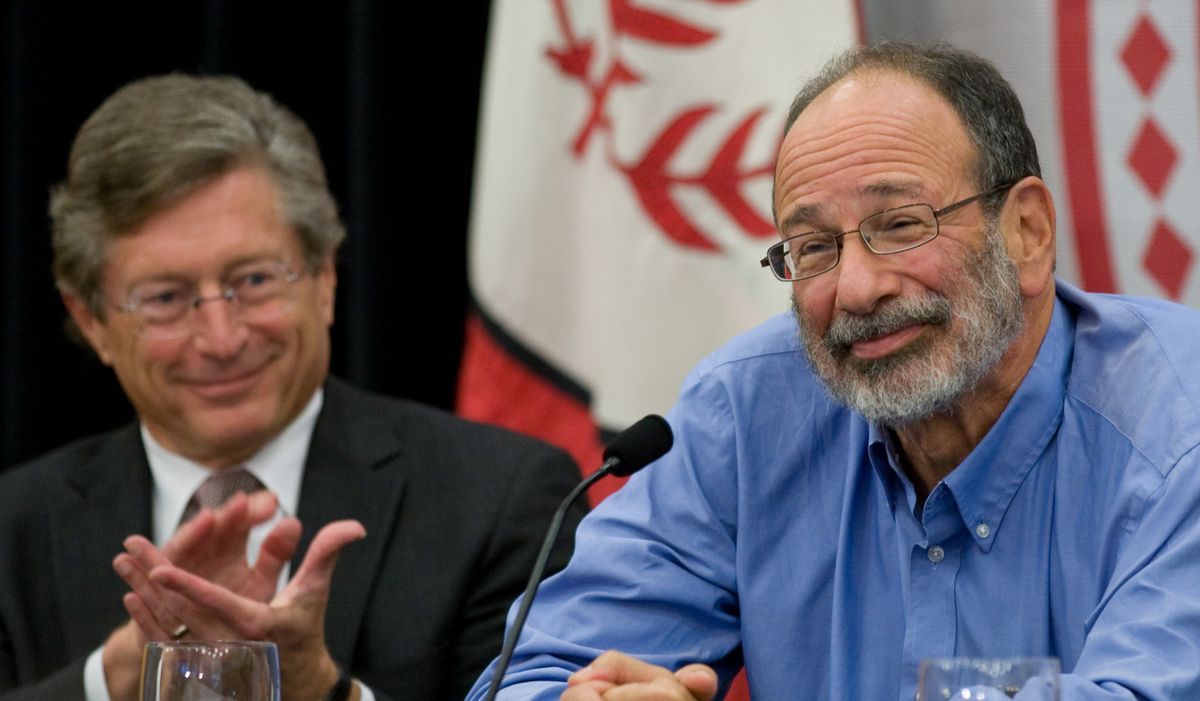Americans win Nobel economics prize

STOCKHOLM – Two American scholars were awarded the Nobel economics prize on Monday for studies on the match-making that takes place when doctors are coupled up with hospitals, students with schools and human organs with transplant recipients.
The work of Alvin Roth and Lloyd Shapley has sparked a “flourishing field of research” and helped improve the performance of markets, the Royal Swedish Academy of Sciences said.
Roth, 60, is a professor at Harvard Business School. He currently is a visiting professor at Stanford University. Shapley, 89, is a professor emeritus at University of California Los Angeles.
Shapley learned that he and Roth had won the $1.2 million award from an Associated Press photographer and another journalist who went to his home in Los Angeles early Monday.
“I consider myself a mathematician, and the award is for economics,” Shapley told AP by telephone. “I never, never in my life took a course in economics.”
Citing “the theory of stable allocations and the practice of market design,” the award focused on the problem of matching different agents in a market in situations where prices aren’t the deciding factor.
Shapley made early theoretical inroads into the subject, using game theory to analyze different matching methods in the 1950s and ’60s. Together with U.S. economist David Gale, he developed a mathematical formula for how 10 men and 10 women could be coupled in a way so that no two people would prefer each other over their current partners.
While that may have had little impact on marriages and divorces, the algorithm they developed has been used to better understand many different markets.
In the 1990s, Roth applied it to the market for allocating U.S. student doctors to hospitals. He developed a new algorithm that was adopted by the National Resident Matching Program, which helps match resident doctors with the right hospitals.
He also helped redesign the application process of New York City public high schools, ensuring that fewer students ended up in schools that were not among their top choices.
Similar formulas have been applied to efforts to match kidneys and other human organs to patients needing a transplant.
Roth was in California when he was notified.
David Warsh, who follows academic economists on his Economic Principals blog, said Roth’s work has revolutionized the way organs are matched to patients. Before Roth, he said, “there were no economists in that business at all. He’s really changed it, and saved a lot of lives.”